
The creamy, refreshing flavor of root beer is delicious with all your home fermented beverages. While many recipes call for a long list of obscure homemade root beer ingredients, we find that using just a handful is enough to make a delicious water kefir root beer or Kombucha root beer.
The same dry root beer flavorings can be premade into a powder, or even used to create a root beer syrup.
Start with the suggested amounts below, then add more or less of each root beer ingredient to fit your own taste preference.
When added to Kombucha, the root beer flavorings offset the sour bite, with vanilla oils helping to mute the tang.
Water kefir root beer mimics a sweeter soda taste, but with the fermented flavor just below. Both will generally build nice bubbles, but the water kefir can be downright explosive, so burp regularly!
CLICK HERE to Compare Batch Brew Kombucha with Continuous Brew Kombucha
CLICK HERE for the Water Kefir Recipe and Brewing Tips
Root Beer History
Despite it’s whimsical place in American culture, traditionally root beer was an ancient remedy of Native Americans, going back many hundreds of years to pre-colonial days. They used the beverage to treat a variety of ailments including colds, coughs, and ringworm, to strengthen the blood, and also as an aphrodisiac!
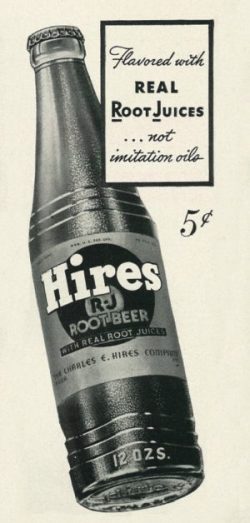
“Flavored with real root juices” back in the good old days. Photo by classic_film on Foter.com / CC BY-NC
Europeans transported the plants (and knowledge) back home from North America as early as the 1600’s. By the mid 1800’s here in the United States, root beer appears in several recipe books and is a popular choice in soda shops.
However, it reaches worldwide acclaim when pharmacist Charles Hires debuts his Root Beer Syrup at the Pennsylvania Centennial Exhibition in 1876, launching an overnight commercial success. Hires Root Beer is available to this day.
Sassafras Silliness
Unfortunately, in the 1960’s the original recipe was neutered by the FDA. Studies on lab rats indicated that safrole, the active ingredient in sassafras, consumed in excessive quantities (highly excessive actually – the equivalent of drinking 32 bottles of root beer everyday for weeks at a time!) might cause liver damage and cancer. Because of this, nearly all modern root beer is made using artificial flavors.
While sassafras has been removed from most consumer products, these days the wisdom has turned back, and you can find sassafras offered as a tea for purchase. Common sense says that the extremely small amount present in a bottle or two of naturally flavored root beer is not considered a concern. Leaving the sassafras out of your recipe is also an option for those who are still uncertain. See below for more.
Homemade Root Beer Ingredients
While it is possible to add an extensive list of ingredients to homemade root beer, we prefer a simpler recipe that offers a delicious, traditional brew featuring just 4 flavorings.
Our special Root Beer Flavoring Pack includes both sassafras as well as sarsaparilla. They combine to create a rounded, powerful “root beer” base flavor we expect.
The addition of wintergreen cuts the characteristic cool, minty taste into the brew.
Vanilla bean is all about that trademark creaminess, plus it adds a touch of sweetness.
Increase or decrease the amount of any individual ingredient to create the flavor that you enjoy best!
How to Use the Root Beer Ingredients
Below are a few different methods for making root beer from any ferment:
- direct infusion of the roots and herbs
- creating a pre-mixed powder
- making a simple root beer syrup
If you want to get fancy, there are several optional herbs and roots in a list at the bottom; customize to your heart’s content!
CLICK HERE for the KKamp Rootbeer Flavoring 4 Pack
Root Beer Recipe – Direct Infusion




 (22 votes, average: 3.73 out of 5)
(22 votes, average: 3.73 out of 5)![]() Loading…
Loading…
- Yield: one 16 oz bottle
- Calories per 8oz Serving: about 45
- Prep Time: 5 minutes
- Cook Time: 48 hours
- Total Time: 48 hours and 5 minutes
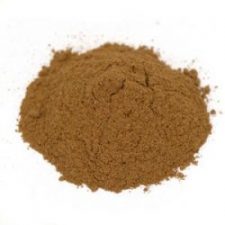
sassafras powder
Ingredients
- ¼ tsp sassafras root, powdered
- ¼ tsp wintergreen, cut leaves
- ⅛ tsp sarsaparilla bark, pieces
- ⅛ of a vanilla bean
- 1 teaspoon sugar (optional, for increased carbonation)
Instructions
- Add ingredients to a 16 oz bottle.
- Fill the bottle to make Kombucha, JUN or Water Kefir root beer.
- Set on counter top for a day or two to infuse the flavor, then move to the fridge if desired.
- If storing for longer than a week, strain out the ingredients and re-bottle.
Root Beer Powder
Keep a ready supply of premixed root beer ingredients to quickly infuse your favorite brew.

Vanilla Bean
Ingredients
- 2 tsp sassafras root, powdered
- 2 tsp wintergreen, cut leaves
- 1 tsp sarsaparilla bark, pieces
- ½ vanilla bean
Instructions
- Add all ingredients to a clean coffee grinder.
- Pulverize to powder.
- Store in an airtight container.
Add 1 teaspoon of Root Beer Powder per 16 oz bottle of Kombucha, JUN or Kefir (1 teaspoon sugar optional for increased carbonation).
CLICK HERE for the KKamp Rootbeer Flavoring 4 Pack
Root Beer Syrup Recipe
Heat helps extract nutrients from the plants, which delivers a richer root beer taste. Sugar adds flavor and fizz but also acts as a preservative.
- Yield: 16 oz (2 cups)
- Calories per tablespoon: about 30
- Prep Time: 5 minutes
- Cook Time: 40 minutes
- Total Time: 45 minutes
Ingredients
- 4 cups water
- 1 cup of brown sugar (THRIVE , AMZ)
- 2 tsp sassafras root, powdered
- 2 tsp wintergreen, cut leaves
- ½ vanilla bean, chopped
- 2 tsp sarsaparilla bark, pieces
Instructions
- Combine all ingredients except sugar in a saucepan over medium high heat.
- Once the mixture boils, add the cup of brown sugar and stir until dissolved. The molasses in the brown sugar will impart a rich flavor.
- Reduce to a simmer over medium to low heat until only 2 cups of the liquid remain. Usually takes 20-40 minutes.
- Strain the liquid into a clean glass jar and store in the fridge.
- Will keep somewhat indefinitely due to the sugar content. Toss if any visible mold appears.
Add 1-2 tablespoons of syrup to 16oz water kefir root beer, Kombucha root beer or JUN root beer. You can enjoy it immediately or infuse for a couple of days to deepen the flavor. The more you use, the stronger the root beer taste.
*variation – Add 2 tablespoons of syrup to sparkling water for a refreshing root beer soda!
Optional Add-In Flavorings
Traditional recipes for root beer may include these and many other options. Feel free to experiment with your own favorites. These are just a few choices, there’s no limit to your creativity!
Other roots to include:
- Ginger root
- licorice root (AMZ)
- sweet birch bark
- black cherry bark
- burdock root (AMZ)
- dandelion root(AMZ)
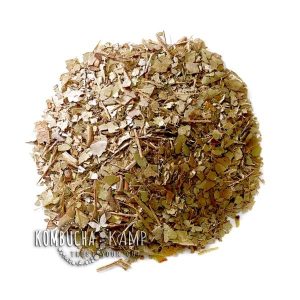
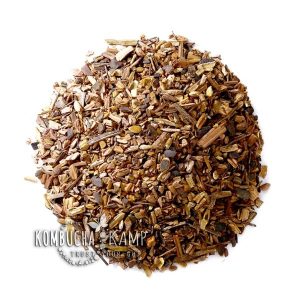
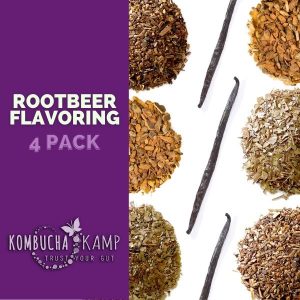
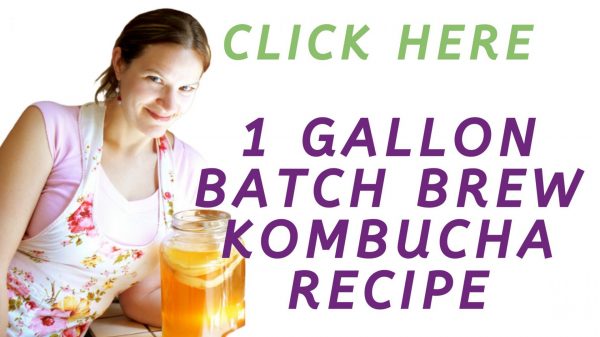
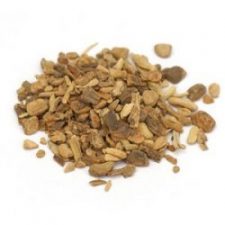
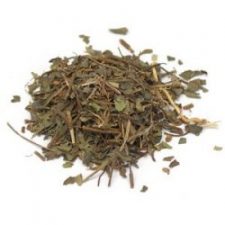
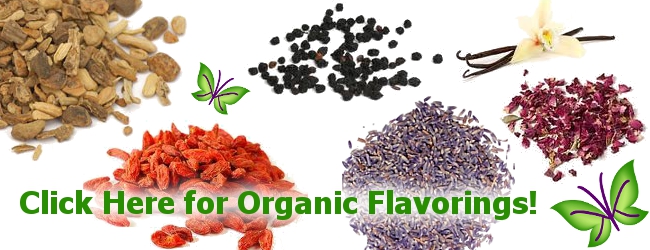
Meagan Schober
October 10, 2024 at 3:07 pmWhen using the Rootbeer Powder, do you need to strain that out or would you just avoid drinking the dregs?
Hannah Crum
October 10, 2024 at 4:17 pmSince its a powder, you might gently rotate the bottle before consuming so that it disperses in the liquid. If you find it to be too grainy, then use a sieve at the time of pouring or as you suggested, simply avoid the dregs where the powder accumulates on the bottom. Let us know how it turns out!
Rita Handrich
May 28, 2022 at 3:32 pmLate to this party but I have root beer CONCENTRATE, not extract. I’m wondering how much you would add to a 16 ounce bottle of kombucha at the beginning of the secondary ferment? (It is much stronger than extract so I’m guessing even the amount of extract you would use would be helpful.)
Hannah Crum
June 16, 2022 at 7:41 amStart small and then add more as you go. Maybe a 1/4 tsp per bottle…let us know what your perfect amount ends up being!
Alanna
February 8, 2022 at 10:14 am2 questions–I see some recipes add molasses and sugar instead of brown sugar–have you tried this?
Why do you use POWDERED sassafras root, and sarsaparilla PIECES? Many recipes I see seem to have equal parts sassafras and sarsaparilla, but the powder would cause more sassafras than the sarsaparilla
Hannah Crum
February 26, 2022 at 6:37 pmLet us know how the molasses & sugar turns out! Molasses has a deeper flavor and we prefer the more subtle flavor of the brown sugar – everyone has their preference! We source wildcrafted sassafras powder which is quite potent – you will find the exact measurements per bottle listed on the label.
romina
April 3, 2021 at 12:21 pmwhat about malt? could i use it to make a beer kombucha?
Hannah Crum
May 16, 2021 at 2:49 pmMalt is a fermentable sugar – give it a try and let us know how it turns out!
Sandra Dunn
March 22, 2019 at 11:46 amI was just thinking about this yesterday. I have root beer extract, would that work? I suppose sugar would have to be added as well?
Hannah Crum
March 29, 2019 at 9:00 amGive it a try – let us know how it turns out!